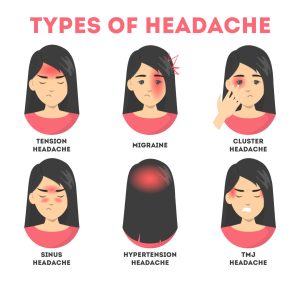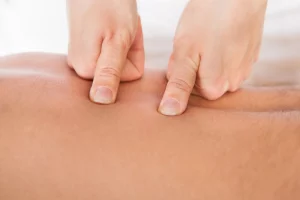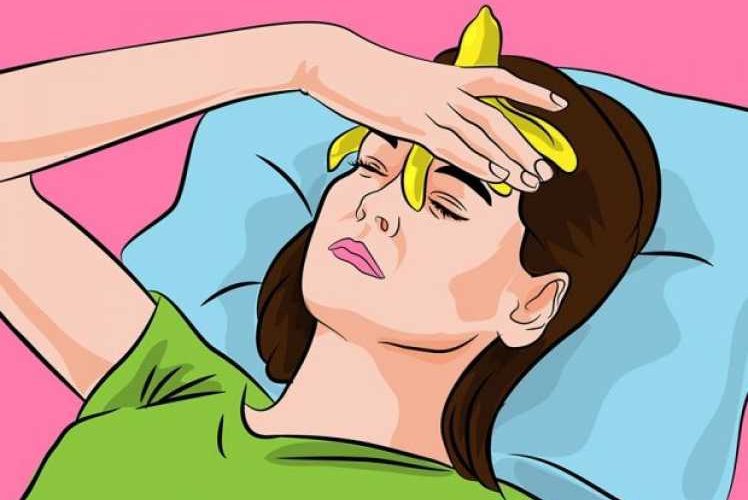Introduction
Headaches are a common ailment that can disrupt your day and lower your productivity. Whether it’s a tension headache, migraine, or cluster headache, finding relief is essential for getting back on track. While there are over-the-counter medications available, natural remedies can often provide effective relief without the risk of side effects. In this comprehensive guide, we’ll explore the top 10 natural remedies for combating headaches and improving your overall well-being. Explore More About other Health Issues And Their Problems (Headache And Nausea Link)
Understanding Headaches
Before delving into remedies, it’s crucial to understand the types of headaches you may experience.
Tension Headaches
Tension headaches are the most common type, characterized by a dull, aching pain and tightness or pressure across the forehead or at the back of the head and neck.
Migraines
Migraines are intense headaches often accompanied by throbbing pain, nausea, and sensitivity to light and sound. They can last for hours or even days and significantly impact daily life.
Cluster Headaches
Cluster headaches are excruciatingly painful headaches that occur in clusters or cyclical patterns. They typically affect one side of the head and are often accompanied by symptoms such as redness or tearing in the eye.

Top 10 Remedies for Bad Headaches
1. Stay Hydrated
Dehydration is a common trigger for headaches. Ensure you drink an adequate amount of water throughout the day to stay hydrated and prevent headaches from occurring.
2. Manage Stress
Stress is a major contributor to tension headaches. Practice stress-relieving techniques such as deep breathing, meditation, yoga, or tai chi to alleviate tension and reduce the frequency of headaches.
3. Maintain a Regular Sleep Schedule
Lack of sleep or irregular sleep patterns can trigger headaches. Aim for seven to eight hours of quality sleep each night and establish a consistent sleep schedule to reduce the risk of headaches.

4. Apply Cold or Warm Compresses Remedies for Bad Headaches
Applying a cold compress to the forehead or the back of the neck can help alleviate headache pain by numbing the area and constricting blood vessels. Alternatively, a warm compress can help relax tense muscles and improve blood flow.
5. Practice Relaxation Techniques
Engage in relaxation techniques such as progressive muscle relaxation or guided imagery to reduce stress and tension, which can help prevent and alleviate headaches.
6. Try Acupressure
Acupressure involves applying pressure to specific points on the body to relieve pain and promote relaxation. Targeting pressure points associated with headaches, such as the temples or the base of the skull, may provide relief.

7. Stay Active
Regular physical activity can help reduce the frequency and intensity of headaches by promoting circulation, relieving stress, and releasing endorphins, the body’s natural painkillers.
8. Experiment with Herbal Remedies for Bad Headaches
Certain herbs and supplements, such as feverfew or butterbur, have shown promise in reducing the frequency and severity of migraines when taken regularly. However, it’s essential to consult with a healthcare professional before starting any new supplement regimen.
9. Practice Good Posture
Poor posture can contribute to tension headaches by placing strain on the neck and shoulders. Be mindful of your posture throughout the day, and make ergonomic adjustments to your workspace if necessary to prevent headaches.

10. Limit Trigger Foods (Remedies for Bad Headaches)
Certain foods and beverages, such as caffeine, alcohol, chocolate, and processed foods, can trigger headaches in some individuals. Keep a food diary to identify and avoid potential trigger foods that may exacerbate your headaches.
| Natural Remedy | Description |
|---|---|
| Stay Hydrated | Drinking an adequate amount of water throughout the day to prevent dehydration, a common trigger for headaches. |
| Manage Stress | Practicing stress-relieving techniques such as deep breathing, meditation, yoga, or tai chi to alleviate tension. |
| Maintain Regular Sleep | Ensuring seven to eight hours of quality sleep each night and establishing a consistent sleep schedule. |
| Apply Cold/Warm Compresses | Applying cold compresses to numb the area and constrict blood vessels or warm compresses to relax tense muscles. |
| Practice Relaxation Techniques | Engaging in progressive muscle relaxation or guided imagery to reduce stress and tension. |
Conclusion (Remedies for Bad Headaches)
By incorporating these natural remedies into your lifestyle, you can effectively combat headaches and reduce their impact on your daily life. However, if you experience severe or persistent headaches, it’s essential to consult with a healthcare professional to rule out any underlying medical conditions and determine the most appropriate treatment plan. With a holistic approach to headache management, you can regain control of your health and well-being.
In conclusion, addressing headaches naturally involves a multifaceted approach that includes staying hydrated, managing stress, maintaining a regular sleep schedule, applying cold or warm compresses, practicing relaxation techniques, trying acupressure, staying active, experimenting with herbal remedies, practicing good posture, and limiting trigger foods. By incorporating these strategies into your daily routine, you can effectively combat headaches and improve your overall quality of life.












